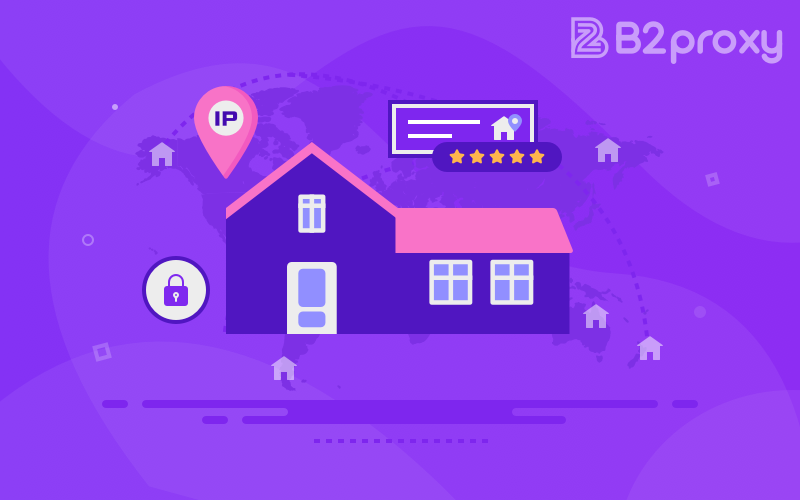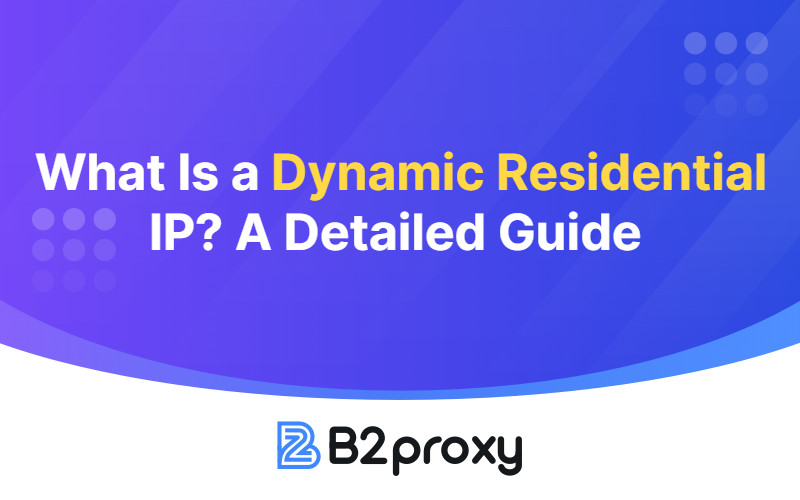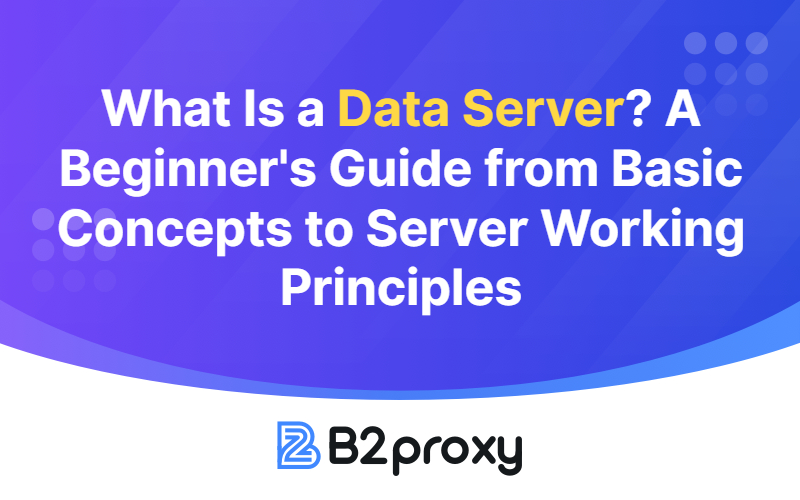IP Proxy Basics: A Guide to Choosing the Right Solution for Different Scenarios
 November 12.2025
November 12.2025

<p>As network security and data transmission become increasingly complex, the concept of <a href="https://www.b2proxy.com/" rel="noopener noreferrer" target="_blank">anonymous proxy</a> has gained attention among internet professionals. An IP proxy acts as an intermediary between users and target servers, effectively hiding real identities, bypassing access restrictions, and enabling efficient data exchange across different scenarios. Choosing the right type of proxy can improve workflow efficiency while balancing privacy protection and connection speed.</p><p> </p><p>1. <strong>How IP Proxies Work</strong></p><p>An IP proxy routes requests through a proxy server rather than sending them directly to the target website. The website sees the proxy server’s IP instead of the user’s real IP. This allows anonymous access, avoids blocks, and simulates real user behavior across different geographic locations. Proxies are essential for cross-region data collection, ad verification, and account management.</p><p> </p><p><strong>2. Common Types of IP Proxies</strong></p><p>● <strong>Datacenter Proxy</strong></p><p> Generated by data centers, these proxies are fast and cost-effective, suitable for large-scale data scraping or batch testing. However, their virtual nature makes them easier for websites to detect.</p><p>● <strong>Residential Proxy</strong></p><p> Using IPs from real home networks, residential proxies are highly credible and difficult to detect. They are commonly used for ad verification, SEO tracking, and price monitoring.</p><p>● <strong>Mobile Proxy</strong></p><p> Based on 4G/5G networks, mobile proxies simulate real mobile user behavior, bypass restrictions, and are ideal for social media management and app testing.</p><p>● <strong>Shared and Dedicated Proxies</strong></p><p> Shared proxies are used by multiple users, offering lower costs but less stability; dedicated proxies provide exclusive IPs for high-security or long-term tasks.</p><p> </p><p><strong>3. Main Application Scenarios</strong></p><p>● <strong>Data Scraping and Market Research</strong></p><p> Proxy IPs from multiple regions allow continuous and complete data collection without being blocked.</p><p>● <strong>Cross-Border E-Commerce and Ad Verification</strong></p><p> Simulate user access from different regions to check ad placement or product display.</p><p>● <strong>SEO Optimization and Content Monitoring</strong></p><p> Use multi-region proxies to check search rankings and website visibility.</p><p>● <strong>Online Privacy and Security</strong></p><p> Proxies hide real IPs, prevent tracking, and protect sensitive data.</p><p> </p><p><strong>4. Key Considerations When Choosing a Proxy Service</strong></p><p>● <strong>Stability and Performance:</strong> Low latency and high availability are essential to avoid connection interruptions.</p><p>● <strong>IP Pool Size and Quality:</strong> Larger pools increase the success rate of tasks.</p><p>● <strong>Geographic Coverage:</strong> Select nodes according to target markets or operational regions.</p><p>● <strong>Security and Encryption:</strong> Ensure encrypted transmission to protect data.</p><p> </p><p><strong>Conclusion</strong></p><p>IP proxies not only conceal identities but also enhance flexibility and reliability in network access. Choosing the right proxy type for specific scenarios significantly impacts task stability and success. From data analysis to ad optimization, proxies are a critical infrastructure for online operations. Among various technologies, <a href="https://www.b2proxy.com/" rel="noopener noreferrer" target="_blank">rotating proxy</a> stands out with frequent IP rotation and strong anonymity, becoming a vital solution for automation and privacy protection.</p>
You might also enjoy

What Is a Dynamic Residential IP? A Detailed Guide to Cross-Border E-commerce Account Isolation and Risk Control Solutions
Breaks down dynamic residential IPs, highlighting their role in account isolation, risk control, and building secure cross-border e-commerce systems.
February 27.2026
How to Access TorrentGalaxy Stably? 2026 Latest Working Links and Proxy Solutions Explained
A practical 2026 guide to accessing TorrentGalaxy reliably, explaining domain shifts, ISP restrictions, proxy methods, and security considerations.
February 27.2026
What Is a Data Server? A Beginner's Guide from Basic Concepts to Server Working Principles
Beginner's guide to data servers, covering core concepts, working principles, architecture, stability factors, and future cloud-driven trends.
February 26.2026







